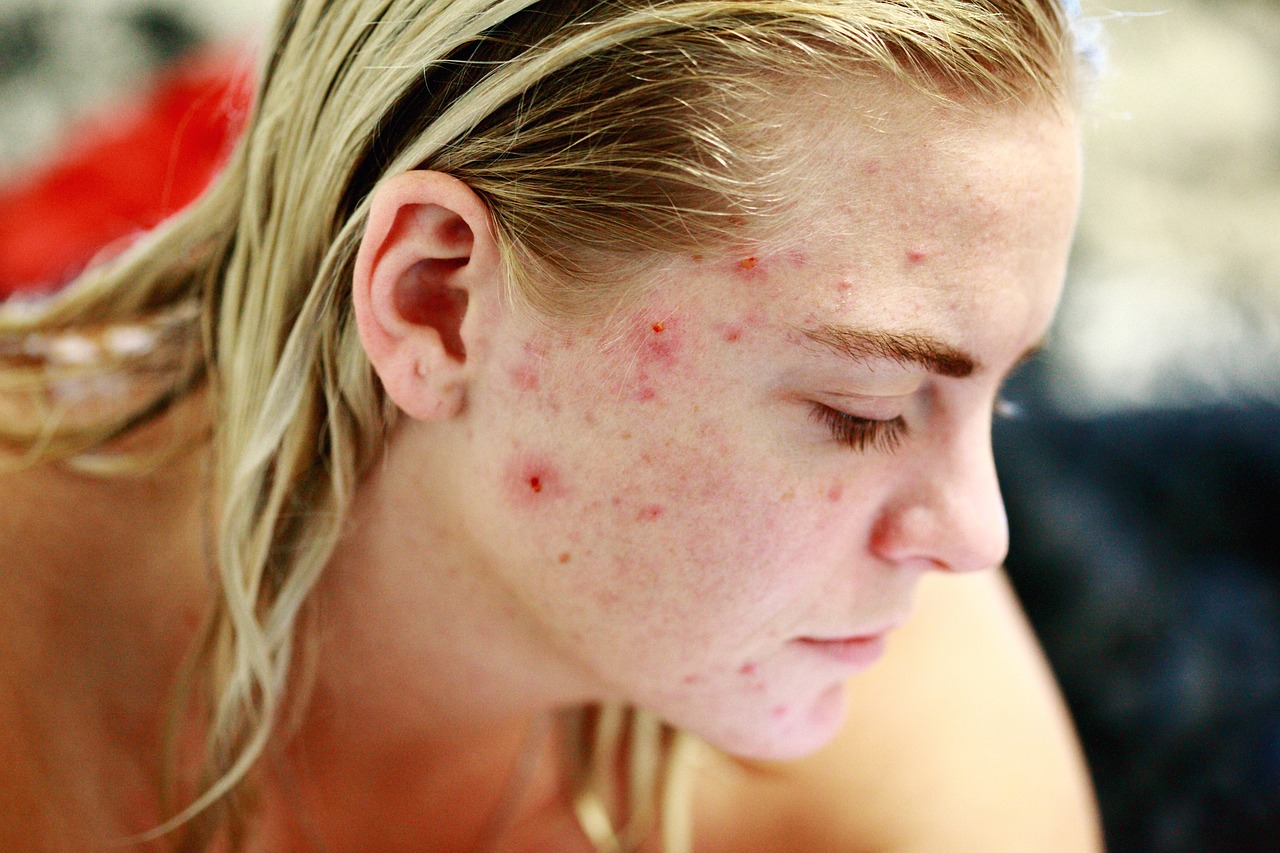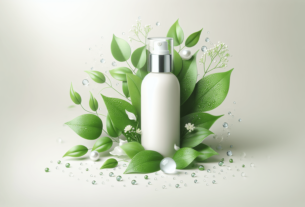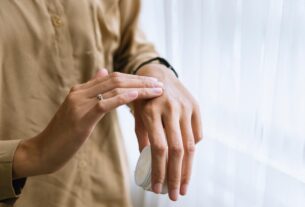Have you ever wondered how you can best care for your acne-prone skin? You’re not alone. Many people face this challenge and are on a quest for clear, healthy skin. Understanding the nuances of skincare, especially when dealing with acne, can be a complex but rewarding journey. Let’s embark on this voyage together, uncovering practical and effective tips to help you manage and improve your skin.
Understanding Acne-Prone Skin
Before diving into specific skincare tips, it’s crucial to understand what acne-prone skin is. Acne can be a result of various factors, including hormonal imbalances, genetics, diet, and stress. Identifying the root cause of your acne can significantly impact how you approach your skincare routine.
Common Causes of Acne
Acne is often rooted in deeper issues within the body and your environment. By knowing the typical triggers, you can better manage and prevent future breakouts.
Factors Influencing Acne:
| Factor | Explanation |
|---|---|
| Hormones | Hormonal fluctuations can increase oil production, leading to clogged pores. |
| Genetics | If your parents had acne, you might be more prone to it as well. |
| Diet | Certain foods, like those high in sugars or dairy, can exacerbate acne conditions. |
| Stress | Elevated stress levels can cause hormone levels to surge, resulting in breakouts. |
| Environment | Pollution and high humidity levels can clog pores and worsen acne. |
Establishing a Skincare Routine
A consistent and well-thought-out skincare routine is vital in managing acne-prone skin. It’s about understanding your skin’s needs and addressing them with suitable products.
Cleanse Gently, But Effectively
The first step in any skincare routine is cleansing. For acne-prone skin, it’s essential to use a gentle cleanser that can remove dirt, oil, and impurities without stripping the skin of its natural oils.
Use a cleanser that contains ingredients like salicylic acid or benzoyl peroxide, which help to keep pores clear and reduce the occurrence of acne. However, avoid over-cleansing as it can irritate the skin and potentially worsen acne.
Exfoliate with Care
Exfoliation can help remove dead skin cells that clog pores, but it’s crucial to choose the right type of exfoliant for your skin type. Chemical exfoliants, like those containing alpha-hydroxy acids (AHA) or beta-hydroxy acids (BHA), are usually more gentle and effective for acne-prone skin compared to physical scrubs.
Exfoliate no more than twice a week to avoid irritating the skin, and always follow up with a good moisturizer to keep your skin hydrated.
Hydration and Moisturization
Hydration is key, even for oily and acne-prone skin. A common misconception is that moisturizing acne-prone skin will make it more oily, but skipping this step can lead to overproduction of sebum as your skin tries to compensate for the lack of moisture.
Choose non-comedogenic, oil-free moisturizers that won’t clog your pores. Look for ingredients like hyaluronic acid or glycerin, which hydrate the skin without adding oil.
Targeted Treatments
Incorporating treatments that target acne can make a significant difference. Products containing retinoids, niacinamide, or tea tree oil can help reduce breakouts and inflammation.
Retinoids, derived from Vitamin A, help increase cell turnover and prevent dead skin cells from clogging pores. Niacinamide, or Vitamin B3, helps to reduce inflammation and can improve the overall texture of your skin. Tea tree oil has natural antibacterial properties that can help reduce acne-causing bacteria.
Lifestyle Adjustments
Your skincare routine will be more effective when combined with healthy lifestyle choices. Here are a few adjustments you can make to support your journey towards clearer skin.
Diet and Acne
There’s a growing body of evidence suggesting that what you eat can affect your skin. While more research is needed, some dietary changes can help manage acne.
Dietary Recommendations for Acne:
| Food to Include | Benefits |
|---|---|
| Omega-3 Fatty Acids (e.g. fish) | Reduce inflammation |
| Fruits and Vegetables | High in antioxidants and vitamins beneficial for skin health |
| Whole Grains | Avoid spikes in blood sugar levels |
| Food to Limit or Avoid | Reasons to Avoid |
|---|---|
| Sugary Foods and Drinks | Can cause a spike in insulin, potentially worsening acne |
| Dairy Products | Linked to increased oil production and potential hormonal imbalances |
| Fast and Processed Foods | Often high in unhealthy fats and sugars that can affect skin health |
Manage Stress
Stress management plays a critical role in skin health. High stress levels can lead to hormonal fluctuations, which can in turn cause breakouts. Engaging in daily stress-reducing activities, such as meditation, exercise, or hobbies, can have a positive impact on your skin.
Quality Sleep
Adequate sleep is essential for overall health, including skin health. Aim for 7-9 hours of quality sleep each night to allow your skin the time it needs to repair and regenerate.
Common Mistakes to Avoid
Sometimes, even with the best intentions, certain habits can inadvertently make acne worse. Being aware of these common pitfalls can help you avoid them and improve your skincare outcomes.
Over-Exfoliating
While exfoliation is beneficial, overdoing it can strip the skin of its natural oils and cause irritation, making acne worse. Stick to a 2-3 times per week schedule.
Using Too Many Products
It’s tempting to try every new product that claims to clear acne, but using too many products at once can overwhelm and irritate your skin. Keep your routine simple and give products time to work.
Neglecting to Remove Makeup
Failing to remove makeup at the end of the day can lead to clogged pores and breakouts. Always use a gentle makeup remover and follow up with a cleanser to ensure your skin is thoroughly clean.
Seasonal Skincare Adjustments
Your skin’s needs can change with the seasons, and adjusting your skincare routine accordingly can help maintain a clear complexion.
Summer Skincare
In warmer months, your skin may produce more oil due to increased humidity and sweat. Use oil-free and lightweight products to avoid clogging your pores. Remember to apply a non-comedogenic sunscreen daily to protect your skin from harmful UV rays.
Winter Skincare
In colder months, the air tends to be drier, which can lead to dehydrated skin. Opt for a more hydrating moisturizer and gentle, non-stripping cleansers. Consider using a humidifier to add moisture to the air in your home.
Spring and Autumn Transitions
As the weather shifts between extremes, your skin may need different care. Pay attention to how it responds and adjust your products as necessary to maintain balance and hydration.
Professional Help
If you’ve tried multiple products and lifestyle changes without significant improvement, it might be time to seek professional help. A dermatologist can offer specialized treatments and advice tailored to your specific skin needs.
Dermatological Treatments
Dermatologists can provide treatment options that aren’t available over-the-counter. These might include prescription-strength topical treatments, oral medications, or in-office procedures like chemical peels or laser therapy.
Medical-Grade Skincare
Sometimes, medical-grade skincare products can offer stronger and more effective results compared to those available at drugstores. These products often contain higher concentrations of active ingredients and are designed to treat specific skin conditions.
Final Thoughts
Managing acne-prone skin can be challenging, but with patience and consistency, you can make significant strides towards achieving clearer, healthier skin. It’s a holistic approach that combines a tailored skincare routine, healthy lifestyle choices, and professional guidance when needed.
Remember, everyone’s skin is unique, and what works for one person might not work for another. It’s about finding the right balance and routine that suits your specific skin type and needs. Embrace the journey, make informed choices, and your skin will thank you.



